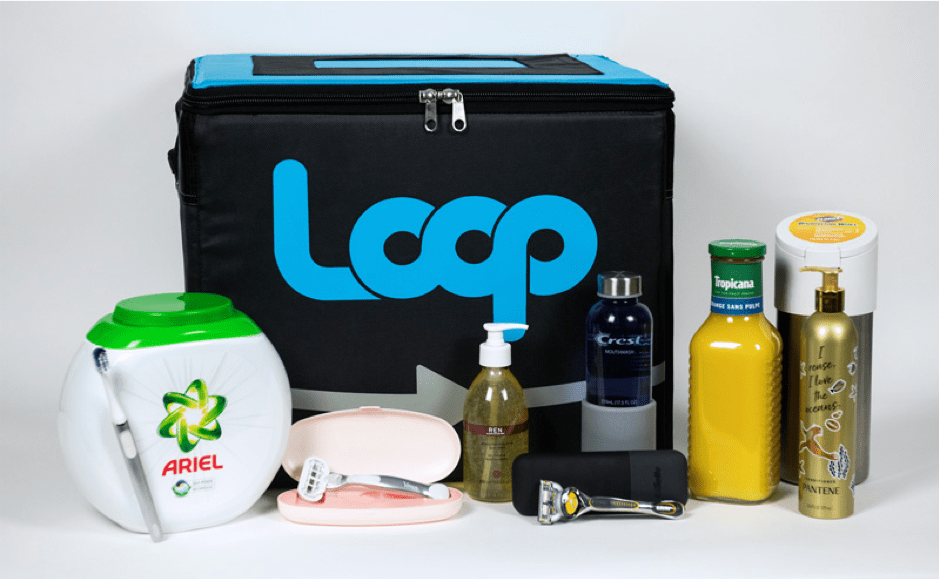By Alison Williamson
Tesco are set to become the first UK supermarket to trial a new scheme to cut down on plastic waste.
The new scheme called Loop, a branch of the popular US Company Terracycle, aims to stop consumers producing any plastic waste at all.
Loop believes that reusing packaging is much better than recycling it.
Recycling supplies creates lower value products, or even results in the destruction of them if they are contaminated.
The first large scale trial will use refillable and reusable tins, tubs and bottles with a focus on eliminating the need, and use, of single-use packaging.
Dave Lewis, Tesco’s Chief Executive, said, “We can’t overlook the fact that for too long, packaging on consumer goods has been excessive. We have all looked at the settled contents of a cereal packet and puzzled over the comparative size of the bag and box. Or opened a bag of crisps and wondered why the packaging is twice the size of the contents.”
It will involve a small pool of customers, around 5000, who will order their weekly shop online.
The shop will be delivered by well-known delivery company UPS, and will come in stainless steel, aluminium, glass or thick plastic containers.
Laura Murphy, a former Tesco employee who worked in the online delivery section, talked about what the change would mean for the online shopper: “I don’t see why it would take any longer from a picker’s [those who put together the online shopping orders] perspective – whether you’re putting loose produce in a plastic bag or a plastic container, it’ll still take the same amount of time.”
Once the products have been used, they will then be picked up by the delivery company and returned to be cleaned and sanitised. The containers will then be refilled and sent back out to customers.
To partake in this, customers will have to pay a refundable deposit for every container, to ensure and encourage those in the scheme to return the tubs rather than keep or bin them.
The deposit price varies for each type of container; 80p for a glass bottle or £5 for a metal container holding body lotion or ice-cream.
The deposit could be very steep for a family ordering a week’s shop, at around £40, with the actual stocks price still to be added on.
However, Chief Executive of Terracycle, Tom Szaky, said “The deposit is critical because this is what will change consumer behaviour, the global waste issue is not plastic, it’s single use.”
The trial will include around 300 products with well-known brands included; from Hellmann’s to Tropicana and it isn’t the first time the trail has been used as in other cities such as New York and Paris these trials have proved a success with a high return rate on the packaging.
 Hellmann’s is one of many popular supermarket brands that are willing to ditch plastic for the trial. – Source: flickr
Hellmann’s is one of many popular supermarket brands that are willing to ditch plastic for the trial. – Source: flickr
As part of the trial there is an auto-refill option, where customers can have their products replaced on their return. A quarter of people in the current trials chose this option, with one customer ordering 13 refills of a product in their first 100 days of joining.
Current Tesco employee, Courtney Lynch commented on one of Tesco’s mission statements; “From what I know we don’t do a great deal in terms of reducing single use plastic, but they’re committed to becoming more sustainable. By 2050, all stores will be zero emissions. Right now, they’ve already cut it basically in half.”
Chief Executive of Sky, Jeremy Darroch, is one of Loop’s first British investors, putting £2million into the scheme as part of Sky’s Ocean Ventures programme; an investment in reducing single-use plastic.
He hopes that these refillable products will be available to roll out across the UK in the next year.
Tom Szaky hopes that Loop will become a solution to reducing the current need for single-use plastic by ‘making a shift from packaging being owned by the consumer, to being durable and borrowed by them’.
He hopes that this change of ownership from the consumer to the manufacturer will, ‘greatly improve the product experience and the convenience in how we shop.’

